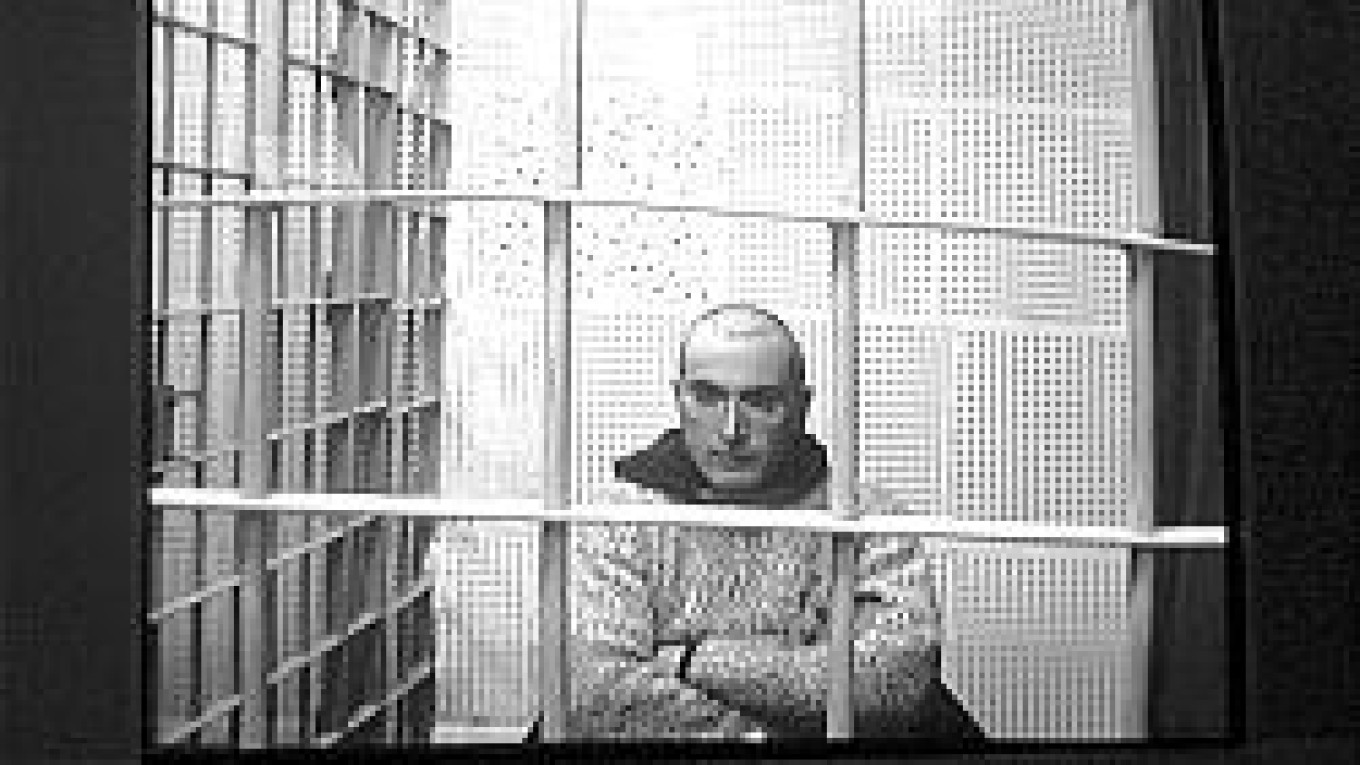He also warned other big businessmen that they might be next to face arrest.
"Those who are not yet jailed must think hard about what it is they are doing," Kolesnikov said, speaking at a round table of State Duma deputies from the ultranationalist Liberal Democratic Party.
He accused Khodorkovsky, the founder of Yukos and Russia's richest man, of stealing the salaries and pensions of average Russians in fraud and tax evasion schemes worth $1 billion. Among other things, Khodorkovsky is charged with cheating the state out of $1 billion through fraud and tax evasion.
Kolesnikov said new charges might be brought against Khodorkovsky in the course of the investigation. As a result, he said, Khodorkovsky's pre-trial detention could stretch up to two years.
"The investigation should be completed in optimal time, which is two months," Kolesnikov was quoted by Interfax as saying.
"But if the volume of the work ends up being big, the detention could be prolonged to 12 months. And if it gets exceptionally big, to two years," he said.
Khodorkovsky faces up to 10 years in prison if convicted of the current charges, he said, adding, "Sadly, it is impossible to give him a longer term."
In making his warning to other business leaders, Kolesnikov suggested that they were ignoring the poverty of average Russians, including hundreds of thousands of homeless children who "sniff glue on the streets."
Kolesnikov's remarks came as the Natural Resources Ministry was reviewing a number of licenses, including those held by Yukos subsidiary Tomskneft. The review came just days after Natural Resources Minister Vitaly Artyukhov said the ministry was ready to seize Yukos' production licenses if need be.
The ministry was not ready to release the results of the meeting Wednesday evening, a spokeswoman said.
Tomskneft operates in the Tomsk region and Khanty-Mansiisk autonomous district and extracts about a quarter of Yukos' oil production.
Newly appointed Yukos chief executive Simon Kukes said he expects the government, which is now checking Yukos' compliance with licenses at its oil fields, to respect the company's drilling rights. "From time to time, licenses get reviewed for compliance," he told Bloomberg. "Yukos handles its licenses the same way as LUKoil, Surgut," he said.
Russian oil companies are known to violate license agreements to some extent, but almost everyone -- oil company representatives, analysts and, at least in the past, government officials -- agree the violations are mostly the result of poorly written licensing laws.
The Natural Resources Ministry, however, will not be able to immediately pull the license in Tomskneft's case, said Valery Nesterov, an oil and gas analyst with Troika Dialog. "After all, there is a legal procedure. First, warnings have to be issued. Then, after three months, the case should go to court," he said.
In addition, he said, there is not even a precise definition of what qualifies as a gross violation of a license agreement. Furthermore, any license withdrawal must also be sanctioned by the relevant regional government, which would be unlikely to do so because local tax revenues and jobs are at stake.
Nesterov said very few licenses had been successfully recalled in the past, and most of those belonged to small companies. Yukos is the country's largest oil company.
"I doubt anyone would be willing to put production of such a scale at risk," he said.
Tomskneft produced 8.1 million tons of crude in the first half of this year.
Deputy Prosecutor Kolesnikov's remarks, meanwhile, might have been designed to serve several purposes, seeing as they came a day after the Moscow City Court turned down an appeal by Khodorkovsky to be released on bail, said Yevgeny Volk, head of the Heritage Foundation in Moscow.
"This looks like the special services were given a kind of carte blanche," Volk said.
At the same time, he noted, comments such as the warning to other big businesses are the kind of populist rhetoric that can be expected during an election season.
Khodorkovsky's charity Open Russia, however, appeared to take Kolesnikov's remarks at face value, comparing the deputy prosecutor to notorious Josef Stalin-era Prosecutor Andrei Vyshinsky, whose name is associated with most prominent show trials of the 1930s.
 ? Two U.S. lawyers hired by Khodorkovsky cancelled a trip to Moscow this week after being warned by the agency that obtained their visas that they would be denied entry at the border, The Washington Post and Kommersant reported Wednesday.
? Two U.S. lawyers hired by Khodorkovsky cancelled a trip to Moscow this week after being warned by the agency that obtained their visas that they would be denied entry at the border, The Washington Post and Kommersant reported Wednesday.John Pappalardo and Sanford Saunders, lawyers for the Washington-based lobbying firm Greenberg Traurig, were to arrive Sunday evening to give a news conference the following day, but they flew only as far as London before turning back to New York, the newspapers said.
Saunders said a State Department official had confirmed that there was a "serious issue" with them entering Russia, The Washington Post reported.
A State Department spokesman said Wednesday that one of the lawyers had contacted someone -- "most likely someone from the Russia desk" -- to discuss the matter.
"Based on the information they claimed to have received, they were going to be denied entry. We advised them on what to do in the event that they were denied entry, but we did not discourage them from going," the spokesman said by telephone from Washington.
Kommersant, citing the lawyers, said the Moscow-based visa support agency Visa House had been searched and all documents concerning them had been seized. But a Visa House employee on Wednesday denied that authorities had seized any documents. "There was no search," she said. "Nothing of the kind."
A Message from The Moscow Times:
Dear readers,
We are facing unprecedented challenges. Russia's Prosecutor General's Office has designated The Moscow Times as an "undesirable" organization, criminalizing our work and putting our staff at risk of prosecution. This follows our earlier unjust labeling as a "foreign agent."
These actions are direct attempts to silence independent journalism in Russia. The authorities claim our work "discredits the decisions of the Russian leadership." We see things differently: we strive to provide accurate, unbiased reporting on Russia.
We, the journalists of The Moscow Times, refuse to be silenced. But to continue our work, we need your help.
Your support, no matter how small, makes a world of difference. If you can, please support us monthly starting from just $2. It's quick to set up, and every contribution makes a significant impact.
By supporting The Moscow Times, you're defending open, independent journalism in the face of repression. Thank you for standing with us.
Remind me later.


